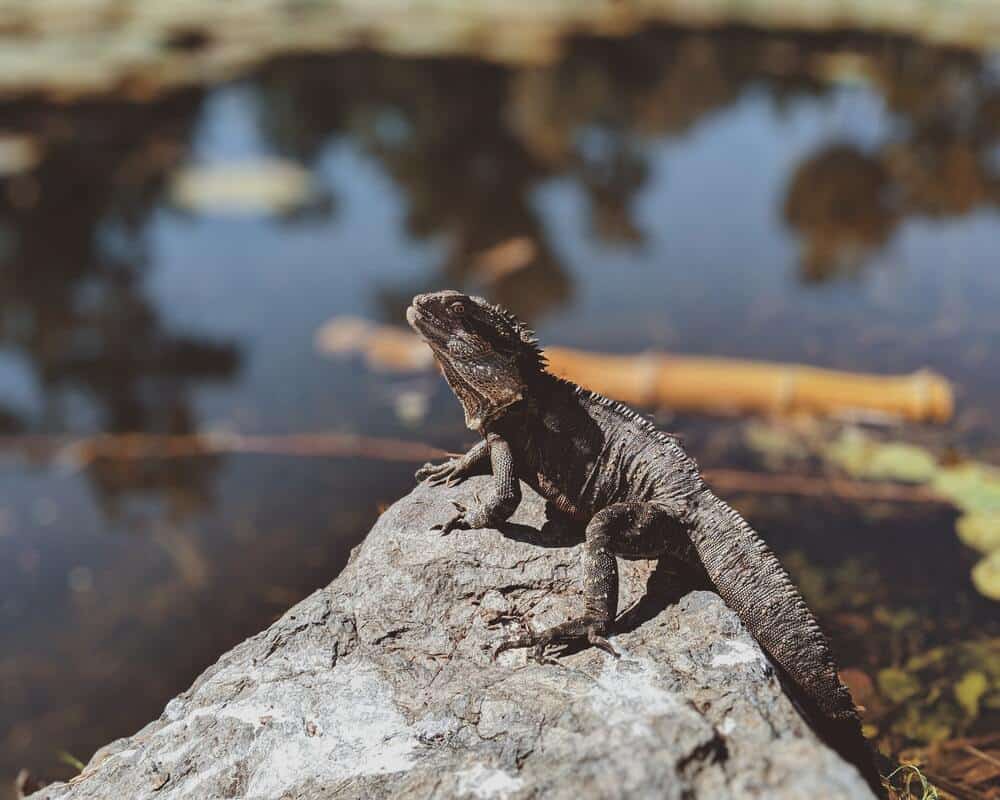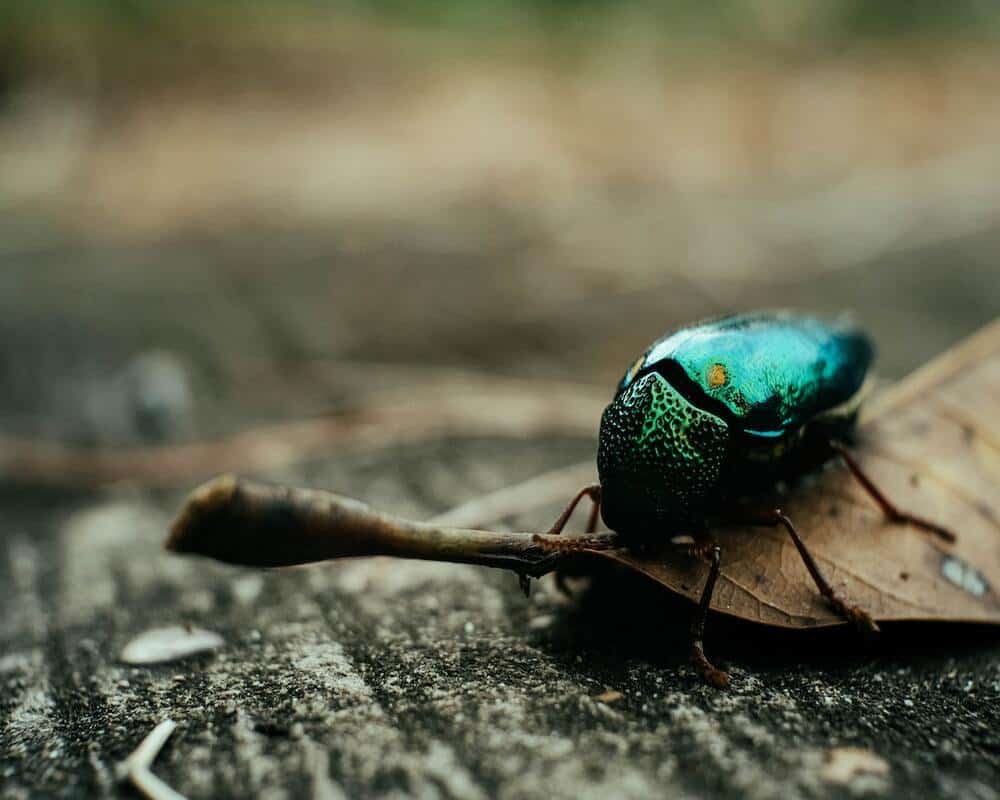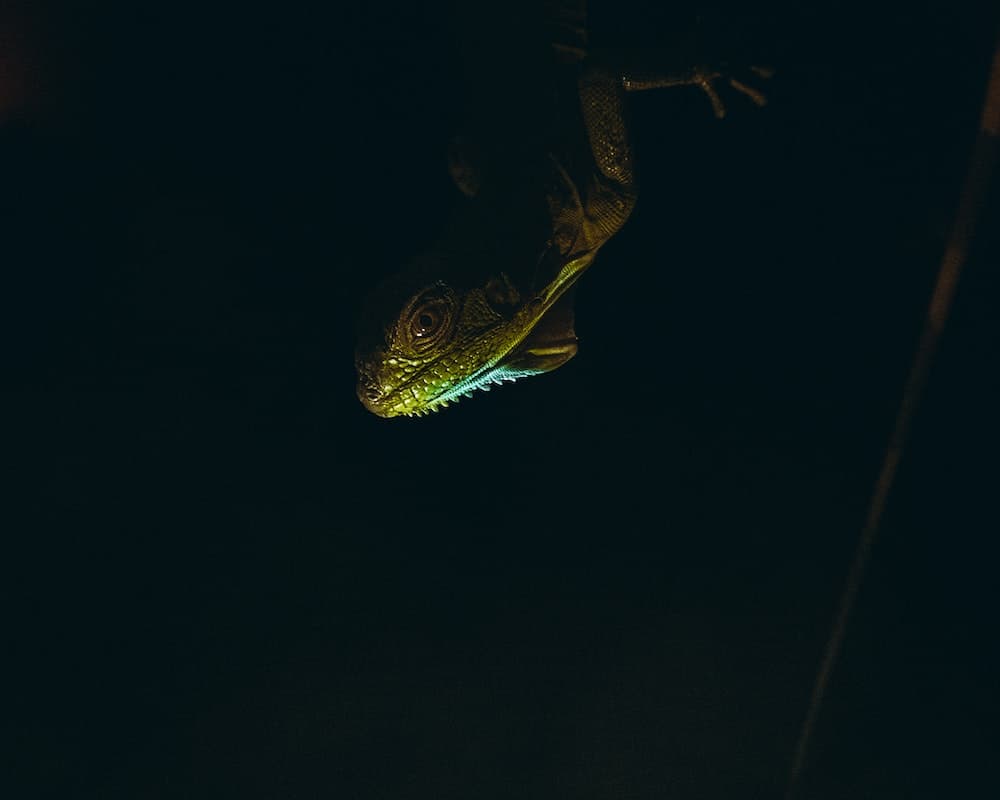Bearded dragons have teeth. They are triangular in shape. The teeth of these reptiles are attached to their jaws. They are sharp which enables them to chew on a wide variety of food items like various insects, vegetables, and fruits.
What is the actual teeth structure of beardies like? How should you take care of their oral hygiene? Let’s discuss these important topics in this post.
Bearded Dragon Teeth Structure
These animals have chompers right from birth. They have approximately 80 teeth in both jaws combined.
The upper jaw consists of roughly 11-17 teeth on each side, whereas the lower jaw has around 13-20 on each side.
Beardies have two types of teeth in their jaws. The teeth in their upper jaw are acrodont teeth, and their lower jaw has pleurodont teeth.
Acrodont Teeth
Human chompers have roots and sockets (holes in which each tooth fits in). These reptiles belong to the Agamidae family known for having acrodont teeth. Beardies have acrodont in their upper jaws.
These chompers do not have any roots or sockets. Instead, they are fused to the jawbone. They are short and triangular. These teeth are present in these animals as a single triangular cusp. They are placed near the back of the mouth.
Acrodont teeth are used for chewing food and do not grow back if they get broken.
Pleurodont Teeth
The lower jaw has pleurodont teeth. Like acrodont teeth, the pleurodont teeth are also attached, but they are attached to the inner edge of the jaw.
They still don’t have proper roots, but they are attached deep enough in the bone, to regrow if broken.
Pleurodont pearlys are used for gripping food or insects. These are fewer in number as compared to the acrodont type of teeth.
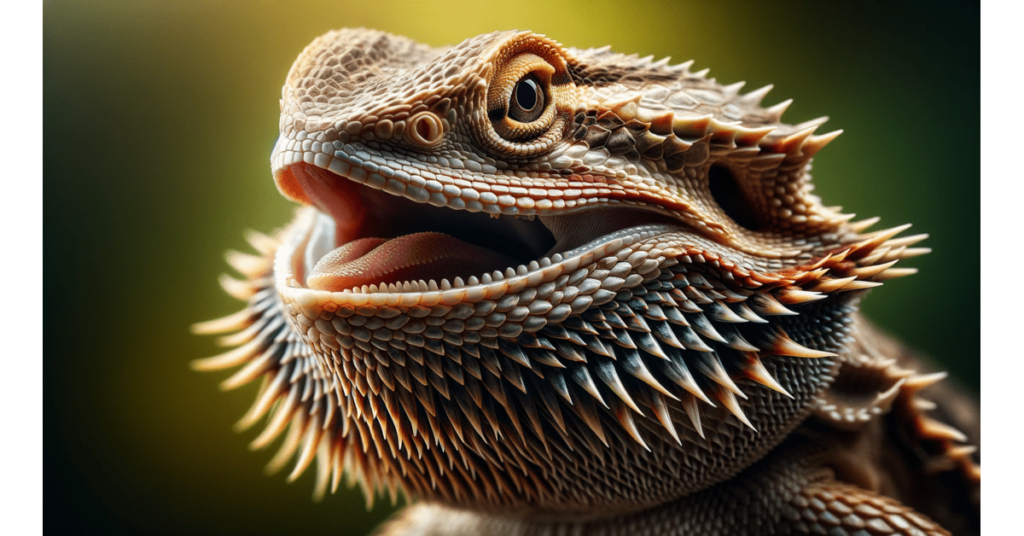
How to Examine A Bearded Dragon’s Mouth?
Having a beardie as a pet, you will have to examine its mouth from time to time or if it shows any symptoms of tooth disease.
In order to inspect your pet’s mouth, gently pick up your pet. Ensure that it is comfortable and not scared while you are inspecting its teeth.
Very gently and carefully apply gentle pressure on the sides of your pet’s head, near the mouth. This very gentle pressure can force your pet to open its mouth, and you can examine the teeth and mouth.
Check for any signs of discoloration, or inflammation of gums, and keep a look out for a missing tooth.
However, it is crucial to note that if you are new to this, or are not confident about this, do not attempt it. You may accidentally end up hurting your beardie.
Instead, consult a vet for instructions to examine your beardies mouth.
Can Bearded Dragons Get Teeth Problems?
These reptiles are prone to periodontal diseases. These diseases related to the teeth structure can lead to common problems like:
- Gingivitis (inflammation of the gum/s)
- Heavy calculus buildup (hardened dental plaque)
- Mouth rot
- Gingival recession (gum recession)
- Osteomyelitis (a bacterial infection that can cause tooth loss)
- Deep bone infections
Most of these teeth-related problems are caused by dietary habits. Your pet’s pearlys need to be examined and cleaned regularly.
It is important to understand that teeth problems can have a direct impact on the overall health of your pet. Periodontal diseases can also cause a lot of pain and suffering to your pet.
Following are some of the symptoms your beardie may have:
- Loss of appetite
- Swelling around the mouth
- Bleeding in the mouth
- Lethargy
- Soreness on the mouth
- Red swollen gums
- Receded gum line
- Missing tooth
- Change in color of the tooth to a darker color
- A build-up of tartar or plaque
- Dehydration
What Should You Do If Your Bearded Dragon Has Dental Diseases?
If your pet shows any of the symptoms mentioned above, it is best to consult a veterinary doctor immediately for further guidance and treatment.
Do not try to treat your beardie at home. Follow the treatment course as suggested by the vet. The veterinary doctor could go for professional dental cleaning or prescribe a course of antibiotics or anti-inflammatory medicines based on the disease.
If dental problems are neglected for a long time and not given immediate attention, they can affect your pet’s overall health.
Top 5 Causes for Damage to Bearded Dragons Teeth
There are certain dietary habits that can ruin your pet’s pearlys. There are also other causes why your pet has teeth problems.
- Too Much Soft Food
Offering too much soft food only in the diet can harm your pet’s teeth. Constantly offering soft-bodied insects, cooked soft food, or shredded food can lead to inviting periodontal diseases.
- Too Much Sugar in the Food
Providing a sugar-laden diet to your beardie frequently can cause problems like tooth decay. Too much sugar can lead to tooth decay and can cause them to fall off if not given immediate attention.
- Bad Nutrition
A diet deficient in vital nutrients like calcium can affect the health of their teeth and bones thereby causing dental problems.
- Extremely Hard Food
Offering hard food like a large vertebrate insect can damage the teeth of your beardie. It can cause undue pressure on the teeth while chewing and can cause them to fall out because of the strain.
- Stress and Lower Immunity Due to Other Physical Diseases
If your beardie is stressed, or has some bacterial or fungal infections, it can reduce its overall immunity and thereby affect the dental health of your pet.
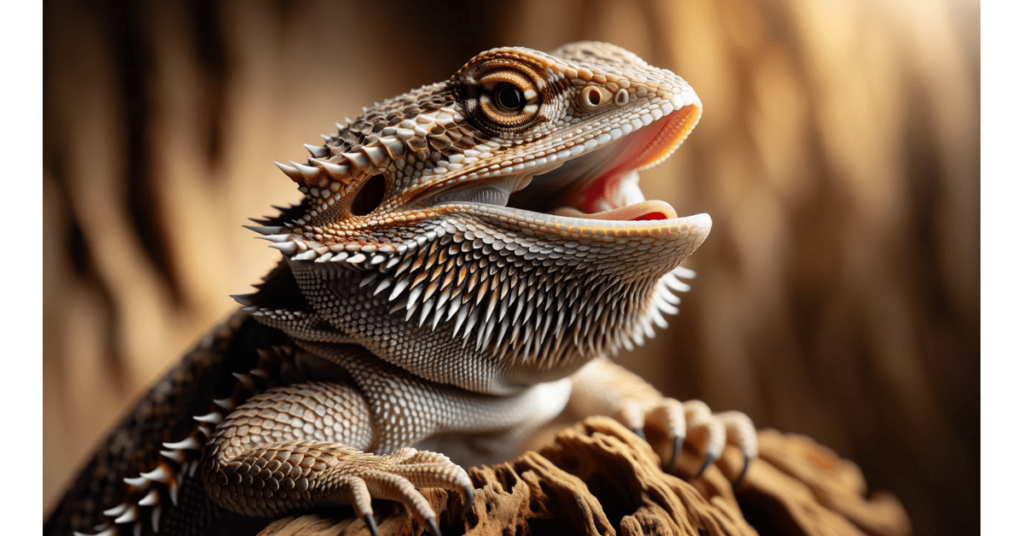
5 Effective Ways to Prevent Dental Problems in Bearded Dragons
There are several ways in which you can prevent any serious dental health issues for your pet.
- Providing a Good and Healthy Diet
Ensure that you provide a good nutrient-rich diet for them. Include a variety of food.
- Ensure it contains crunchy and solid food.
- Do not offer only soft food.
- Avoid offering too many sugary fruits or food items.
- Restrict the fruit content to two to three times a week.
- Do not offer any hard vertebrate insects which will be tough to chew.
- Maintaining Good Oral Hygiene
Arranging regular visits to the vet for periodic cleaning and maintenance of your pet’s teeth is advisable for ensuring long-term good dental health.
It can involve regular tooth cleanings and check-ups. If you have to clean your pet’s mouth at home, it is best to learn from a veterinary doctor about the procedure and the precautions to be taken while doing so.
- Calcium and Vitamin D3 in Diet
Beardies need calcium to maintain good dental and bone health. Dust the food with calcium and Vitamin D3 supplements for improving your pet’s bone and dental health.
- Installing UVB Lighting in the Terrarium
Exposure to UV lighting is important for the absorption of calcium in the body. Install a good UVB light within the pet enclosure so that your beardie can bask in it and have better health.
- Providing a Stress-Free Environment
A good clean hygienic pet enclosure with optimal living conditions will keep your beardie stress-free.
Bearded dragons under stress can resort to actions like banging their heads on the walls of the pet enclosure. This action can make them damage or lose their teeth.
It is of utmost importance that you keep your beardie in a stress-free environment.
Conclusion
Though these animals have tiny teeth, their dental health is a crucial factor in determining their overall health and well-being. Establishing a good dental care routine, regular visits to the veterinary doctor, ensuring a hygienic and healthy environment, and supplying a nutrient-rich diet will prevent any dental problems.
FAQS
- Can Beardies Bite You?
Yes, they can bite you. They bite with the teeth present on their lower jaw. They are not aggressive by nature. Although they can bite you in extreme cases. Their bites can be slightly painful.
Adult bearded dragon bites can be slightly venomous. Basic first aid is recommended in case you get bitten by your pet.
- Do the Teeth of Bearded Dragon Fall Out Naturally?
No. They do not fall off naturally. However, they can fall off in case of decay or under physical force or strain.
- Are Bearded Dragons Born with Teeth?
Yes, baby bearded dragons have teeth, as beardies are born with them. This is a biological mechanism so that baby bearded dragons could have survived in the wild on their own.


